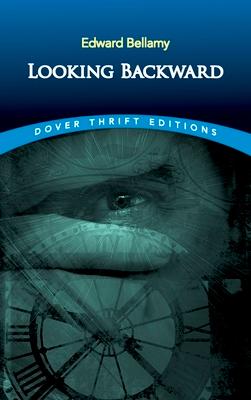First published in 1888, Looking Backward was one of the most popular novels of its day. Translated into more than twenty languages, its utopian fantasy influenced such thinkers as John Dewey, Thorstein Veblen, Eugene V. Debs, and Norman Thomas. Writing from a nineteenth century perspective and poignantly critical of his own time, Bellamy advanced a remarkable vision of the future, including such daring predictions as the existence of radio, television, motion pictures, and credit cards.
On the surface, the novel is the story of time traveler Julian West, a young Bostonian who is put into a hypnotic sleep in the late nineteenth century and awakens in the year 2000 in a socialist utopia. Crime, war, personal animosity, and want are nonexistent. Equality of the sexes is a fact of life. In short, a messianic state of brotherly love is in effect.
Entertaining and stimulating, Looking Backward, is a provocative study of human society as it is and as it might be.

First published in 1888, Looking Backward was one of the most popular novels of its day. Translated into more than twenty languages, its utopian fantasy influenced such thinkers as John Dewey, Thorstein Veblen, Eugene V. Debs, and Norman Thomas. Writing from a nineteenth century perspective and poignantly critical of his own time, Bellamy advanced a remarkable vision of the future, including such daring predictions as the existence of radio, television, motion pictures, and credit cards.
On the surface, the novel is the story of time traveler Julian West, a young Bostonian who is put into a hypnotic sleep in the late nineteenth century and awakens in the year 2000 in a socialist utopia. Crime, war, personal animosity, and want are nonexistent. Equality of the sexes is a fact of life. In short, a messianic state of brotherly love is in effect.
Entertaining and stimulating, Looking Backward, is a provocative study of human society as it is and as it might be.